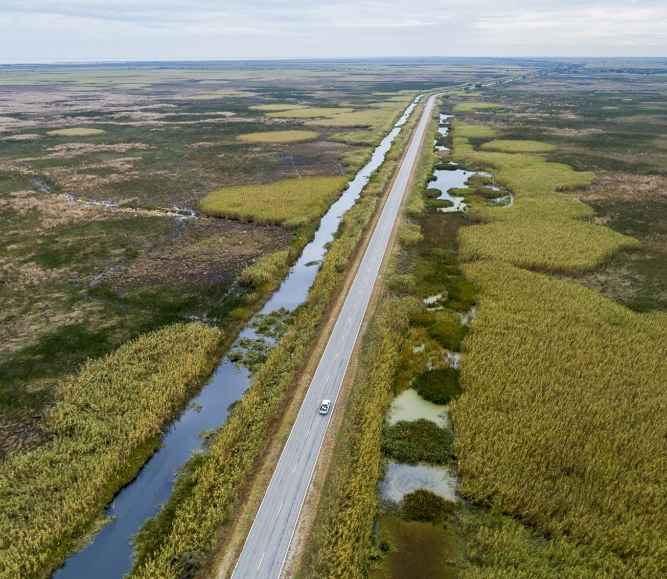EPA finalizes new Waters of the U.S. definition
Upcoming Events
Related News

Key Takeaways
On January 23, the U.S. Environmental Protection Agency (EPA) and the U.S. Army Corps of Engineers (Army Corps) finalized a new “Waters of the U.S.” (WOTUS) definition to replace the 2015 WOTUS rule issued under the Obama Administration. The announcement comes two years after President Trump signed an executive order directing the EPA to withdraw and rewrite the controversial 2015 rule. The rule goes into effect on 60 days after being published in the federal register.
The new definition creates four categories of regulated waters and includes 12 exemptions. The four categories of WOTUS include:
- Territorial seas and traditional navigable waters
- Tributaries
- Lakes, ponds and impoundments of jurisdictional waters
- Adjacent wetlands
The rule specifies that if water does not meet one of the four listed categories, it will not be considered a WOTUS and clarifies that certain other waters will also no longer be considered a WOTUS. These exemptions include:
- Waterbodies that are not included in the four WOTUS categories
- Groundwater
- Ephemeral features
- Diffuse stormwater run-off and directional sheet flow over upland
- Certain ditches
- Prior converted cropland
- Artificially irrigated areas
- Artificial lakes and ponds
- Water-filled depressions
- Stormwater control features
- Groundwater recharge, water reuse and water recycling structures
- Waste treatment systems
NACo is working on a detailed analysis of the rule and will continue to track WOTUS activity. Click here to view EPA’s fact sheet on the new rule.
BACKGROUND INFORMATION
The term WOTUS has been around since 1899 when it was added to the Rivers and Harbors Act, which is the initial authority for the U.S. Army Corps of Engineers (Army Corps) permit program in “navigable” waters. In 1972, WOTUS was added to the Clean Water Act (CWA) to differentiate which waters fall under federal versus state authority. Since its inclusion in the Act, the definition has been redefined several times. In the 2000’s, the U.S. Supreme Court decided two WOTUS related cases which caused further confusion about the scope of WOTUS in the field. As a result, more counties and other stakeholders had to obtain CWA Section 404 permits for some construction and maintenance projects, which can be costly, time-consuming and complex.
Consequently, in June 2015, the Obama Administration finalized a controversial new definition for WOTUS. NACo expressed concerns about the final rule because it would increase federal jurisdiction over road, bridges, flood control channels and ditch construction and maintenance projects. Almost immediately after the rule was finalized, numerous lawsuits were filed in the district and appeals courts.
Since President Trump’s 2018 executive order, EPA has been drafting a new WOTUS definition. In February 2019, EPA and the Army Corp released the Trump Administration’s proposed new WOTUS definition. In response to the proposed definition, in April 2019, NACo submitted two sets of comment letters. The first letter, with the National League of Cities and the U.S. Conference of Mayors, highlighted the opportunities and challenges that counties, cities and mayors potentially face. The second letter was exclusively focused on counties and went into greater detail on how the rule could potentially impact county-owned infrastructure. It also offered recommendations to the agencies.
On September 12, the Trump Administration released a final rule to repeal the 2015 “Waters of the U.S.” (WOTUS) definition and reinstate the pre-2015 WOTUS definition from 1986, which is currently in effect.
Related News

County Countdown – March 25, 2025
Every other week, NACo's County Countdown reviews top federal policy advocacy items with an eye towards counties and the intergovernmental partnership. This week features budget reconciliation, FY 2025 funding and more.

CEQ issues interim final rule on implementing NEPA regulations
On February 25, the Council on Environmental Quality (CEQ) issued an interim final rule to remove existing federal regulations on P.L. 91-190, the National Environmental Policy Act (NEPA), and rescind CEQ’s authority to promulgate NEPA regulations. CEQ issued a memo on February 19 asserting that any federal agencies implementing regulations should prioritize streamlining and expediting NEPA’s permitting process. The rule is effective April 11, 2025.
Featured Initiative
Waters of the U.S. Action Center


